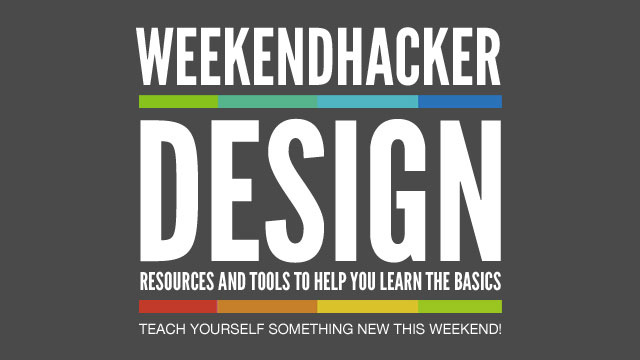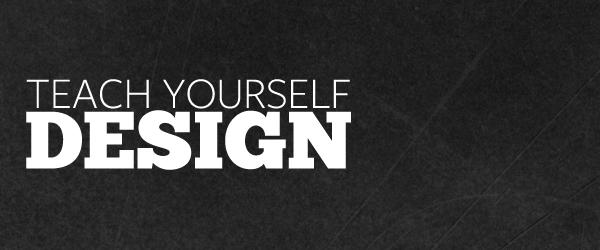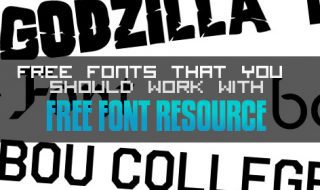
It really is a jungle out there. In this way-less-than-ideal economy and nearly non-existent job market, aspiring web designers find themselves in a conundrum. On the one hand, you want to give yourself a competitive edge that will make you stand out from other employment seekers. But, on the other hand, you don’t want to invest money in a fancy degree if you don’t have to.
Before embarking on a lengthy and costly education–or deciding to forego one completely–here are a few things to consider.
Can you teach yourself?

Learn the Basics of Design This Weekend
There are requisite skills if you wish to succeed as a web designer and, if you are not going to pursue a formal education, you will have to learn them on your own. This will take dedication, motivation, and focus. If you are a self-starter who can hit the books on their own without becoming distracted or bored, this may be a viable option.
You will need to develop a knowledge of HTML, CSS, the principles of design, SEO, Adobe software, communication skills, social media marketing, problem solving skills, management know-how, and business sense.
The Benefits of Self-Teaching

Everything You Need to Know To Teach Yourself Design from Scratch
If you are confident that you can acquire the requisite skills without going to school, there are a few benefits of taking this route.
-
It’s cheaper. You can buy a huge pile of “how to” books and enroll in many web classes for less than the price of just one semester of college or university.
-
You can keep your job. The self-taught method enables you to schedule your training around your current job. This keeps the money flowing in, while you develop new skills.
-
You set the pace. You have complete control over how much time you invest in acquiring these skills. If you want to bump up the pace, you can. This means you can enter your new career faster than you would have if you had opted for a formal education. Conversely, if you need more time to master a specific skill, you can practice it as long as you like.
-
You can keep current. By designing your own curriculum, you can better ensure that you are up-to-date on the latest technology and what is trending.
Formal educational options

IS A GRAPHIC DESIGN DEGREE WORTHWHILE?
If you feel that a formal education will give you a competitive edge or you know that you will be better able to acquire the requisite skills in a traditional school environment, there are a couple of paths that you can take.
Many Web Designers possess an associate degree. If you opt to study Computer Science, most employers will demand a four-year degree. A two-year program is acceptable to some, but if you are motivated by the desire to edge out the competition, this may not be your best bet. If you have opted for the Graphic Design route, you will need to earn a Bachelor’s Degree. Just make sure that you also gain experience in the area of Web Design, while you’re at it.
The Benefits of a Formal Education

How to Get the Most out of Your Design Degree
A formal education may be costly, but you do get several significant bangs for your buck.
-
You will gain valuable networking. College is a great place to brush shoulders with the future movers and shakers of the web design world–connections that may prove beneficial in your job search.
-
Your credentials will boost your confidence. Possessing a degree will not only help you with your job search, but it may also boost your self-esteem and self-efficacy.
-
It provides structure and routine. Educational institutions provide learners with structure–a key ingredient to success for many people. The curriculum is pre-planned with the goal of providing you with a well-rounded education and the requisite skills required to achieve success in your field. Courses are designed to have a natural flow, including checks and balances to make sure that you are on track.
-
Employment assistance may be available. Many colleges and universities assist their graduates with finding work in their field. Some even offer internships as part of their program, which could lead to employment opportunities.
-
You will gain a portfolio of work. Over the course of your study, you will be provided with many chances to develop your portfolio–an extremely important tool for selling yourself to future employers.
The most important factor in deciding which route to take is how well you know yourself and your study habits. Not everyone is cut out for self-instruction. If you are, you can save yourself a bundle of cash. But, if you will do better in a traditional school setting, putting that bundle of cash towards your education may be a wise investment.
What educational route did you take to become a Web Designer? What were the pros and cons? Let us know in the comments below! Thanks for reading!




Nice article. I think I’ve learned more teaching myself (with a little help of Google) then at school. It also depends on how much perseverance you have, how eager you are to learn new stuff and keep being curious.
You’ve got a really good point about networking and portfolio that’s a major advantage with education. I can say from personal experience. But even when you have earned your diploma you have to keep up with new developments. Especially when you are in the field of the inter-webs.